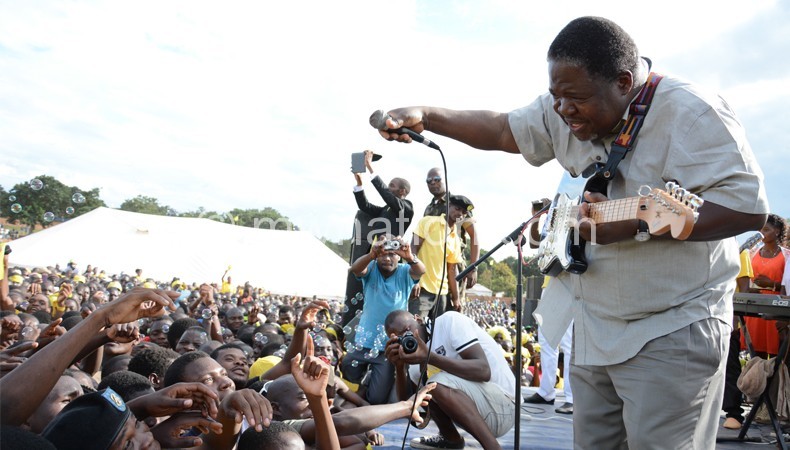From vinyl to digital
- Through Paul Banda’s eyes
For someone born in this generation, a gramophone, a record player or a vinyl record is just another antiquity best consigned to the national museums. But for the older generation, it holds memories of how they used to sway their bodies to the likes of The Beatles, The Skylarks, Paul Ngozi, Miriam Makeba and Mahotela Queens on the record player.

The 1980s saw the inexorable decline of vinyl records, gramophone and record players to be replaced by cassette tapes and cassette players whose span lasted until the late 1990s when they were swatted aside by a new phenomenon: CDs and digital music players.
Today, one can listen to music stored on mobile phones, computers, iPods, tablets, MP3 players and other digital gadgets available on the market.
Technological advancements have affected music in ways that were inconceivable before. One generation has witnessed the transition from records through cassette tapes to CDs and other digital devices that play audio. Veteran musician Paul Banda belongs to that generation.
According to Banda, Malawi had only one recording studio in 1970s and for one to record a song, one had to rehearse properly to be able to pass through the stringent quality controls at Malawi Broadcasting Corporation (MBC) studios. This, he observes, enhanced music quality as musicians worked hard to produce good sound.
“There was one problem though; MBC did not pay royalties to musicians and they did not let you keep a copy of your song once they recorded it,” said Banda.
Banda observes, however, that although MBC copied the style of recording musicians from the British Broadcasting Corporation (BBC), they did not adopt it fully as they never paid royalties to musicians as the British broadcaster did.
“You were actually told to write a letter to the State that you were donating the song to the station and that you would not expect any monetary gains,” said Banda.
MBC approached Banda in 1988 to record his songs on the same terms but he declined the offer.
“I refused because when I listened to Robert Fumulani, who was one of my favourite musicians, I did not see why his music could not sell. [The alternative was producing vinyl records] but recording on vinyl was expensive and required one to travel to South Africa. The only option was radio cassettes,” said Banda.
Banda’s desire to record his songs for commercial purposes coincided with another development in music distribution. It was during this period that OG Issa started duplicating music by foreign artists on cassette tapes and then he would label them with a white board-marker ready for sale.
“I listened to Super Sounds’ Mangerengere and noting how low the quality of his music was, I said I could record better than that. In spite of it all, OG Issa cassettes were selling like hot cakes. I knew I could also make it,” said Banda.
In 1988, Banda recorded Mtendere with Alelluya Band at Andiamo Studio.
Banda approached OG Issa to strike a distribution deal with him, a move which made it the first Malawian album to be distributed by OG Issa.
Following the success of Mtendere, Banda built his privately-owned studio in Balaka, Imbirani Yahwe, in 1991. This gave an opportunity to Malawian musicians not only to record, but to reap from music through selling with the emergence of OG Issa.
Performing as a monopoly in the industry, OG Issa observed quality standards, but Banda confessed that the coming in of other players brought chaos in the distribution market.
“That is when things went haywire, as every Jack and Jim wanted to record music and the quality of music diminished,” he lamented.
Banda, however, narrates that the honeymoon for the new entrants did not last long as OG Issa had bought a new machine to duplicate cassette tapes and Cosoma gave a license to OG Issa only and the others were prohibited because of lack of quality. That is how they went into oblivion.
“We then moved into the digital era. It became easy to record. But for me, it took away my interest because we could no longer record using analogue. I preferred analogue because the music had a human feel to it,” said Banda.
He argued the CDs encouraged piracy, and although CDs have a high quality when recorded, the music became bubble gum.
“I remember in the 1990s we used to listen to rhumba music but the coming of South African digital music by the likes of Brenda Fassie and Yvonne Chaka Chaka phased out the other genres but their music died as well within a few years. Digital music lacks that human element which makes music vintage. It’s too perfect to last long,” said Banda.
He said although technology has posed a threat to quality of music, it has brought the ease in the distribution of music.





